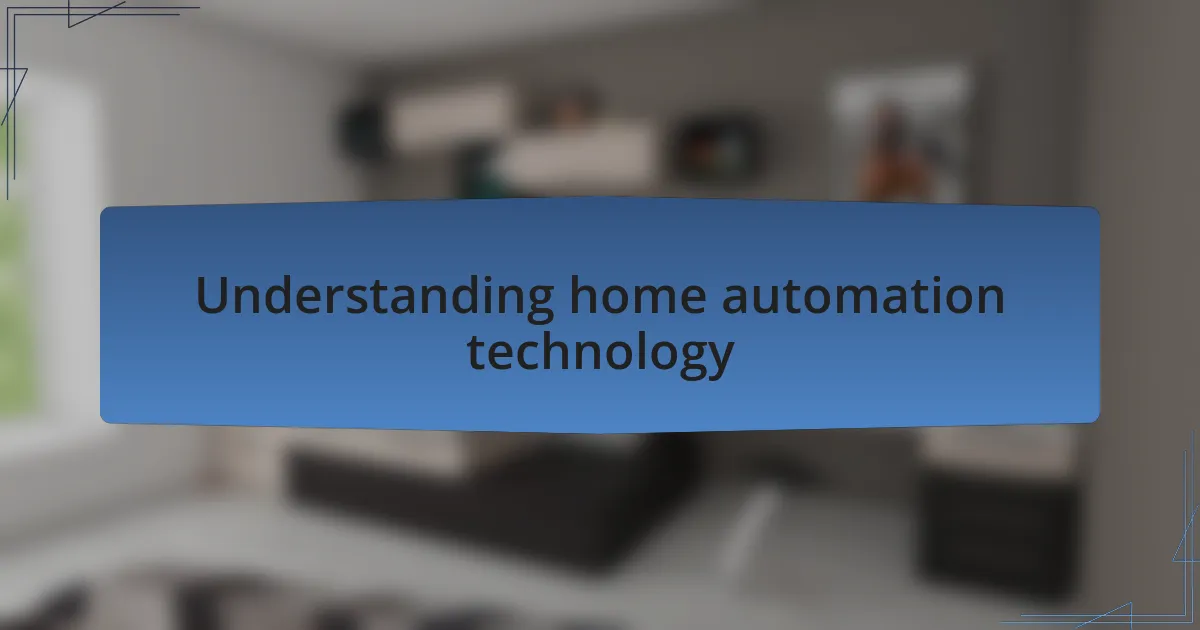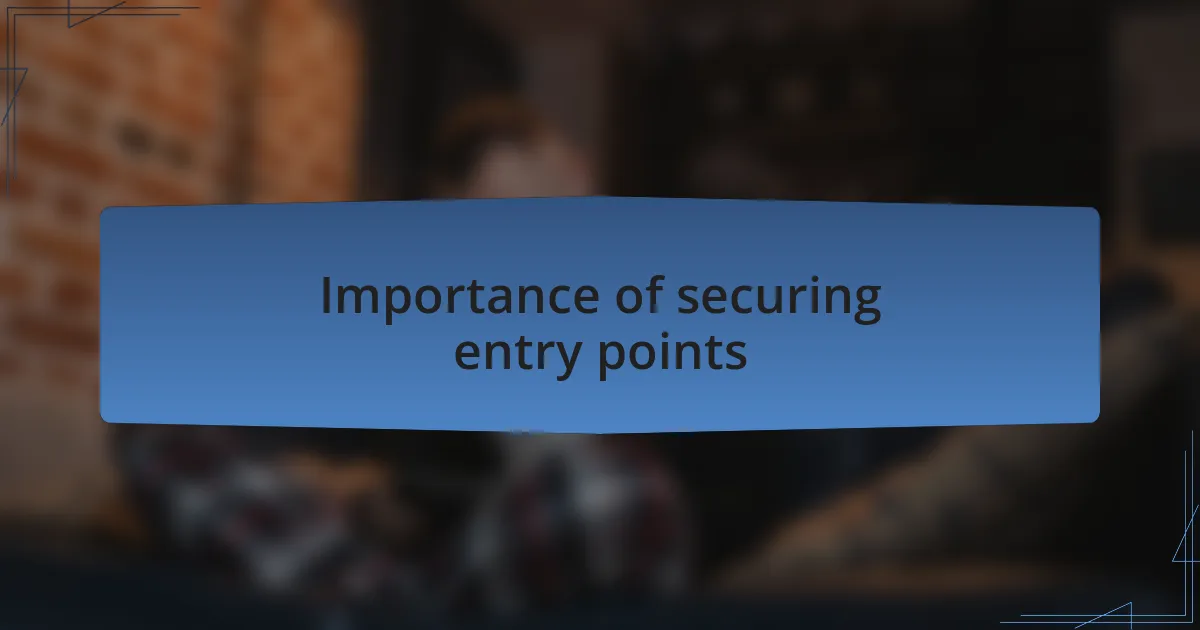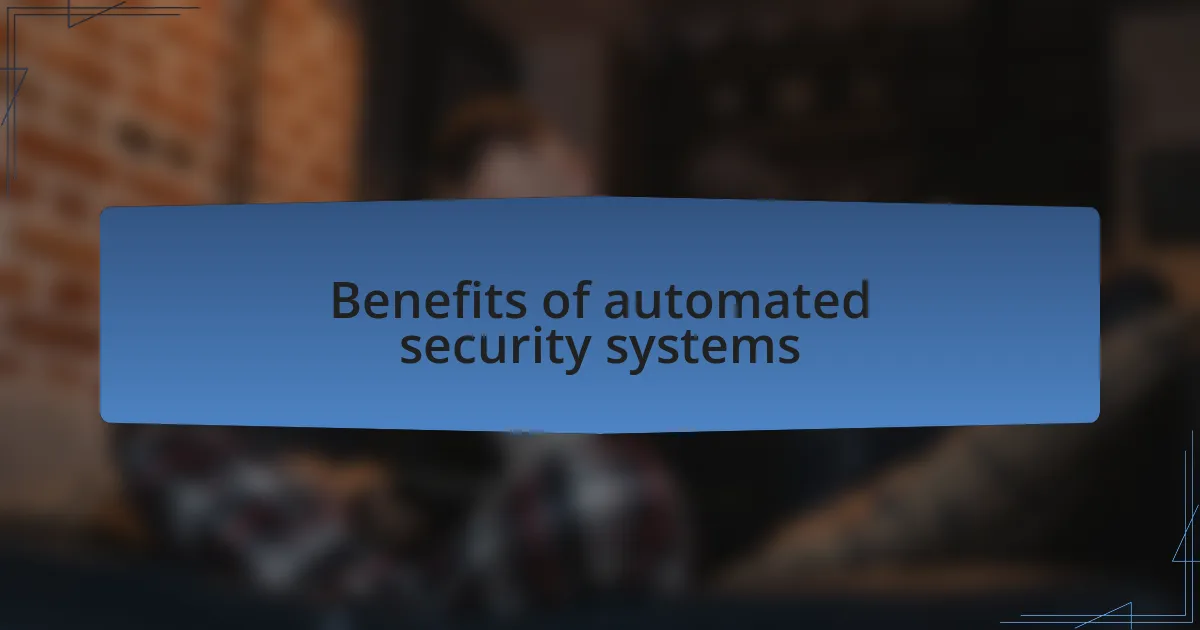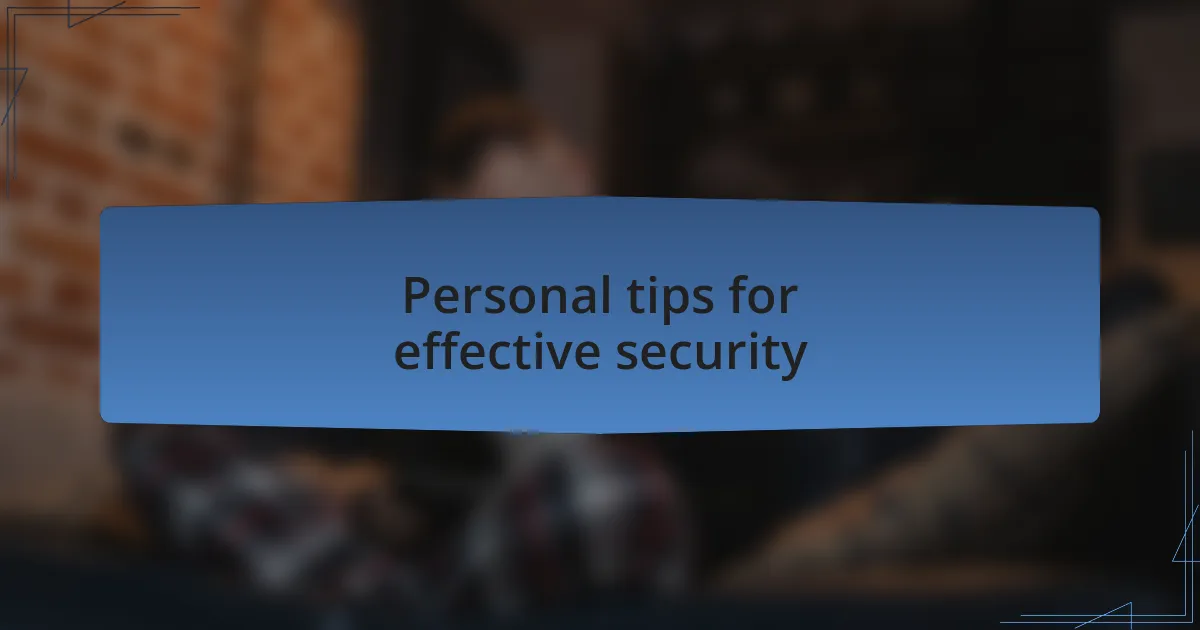Key takeaways:
- Home automation technology enhances convenience and security but requires awareness of potential cyber threats.
- Securing entry points with strong passwords and two-factor authentication is crucial to protect against hackers.
- Automated security systems provide peace of mind and can deter crime through visible security measures.
- A layered security approach, including smart locks and motion-sensor lights, enhances home safety and usability.

Understanding home automation technology
Home automation technology revolves around the ability to control household devices remotely or automatically, often through smartphones or smart assistants. I remember the first time I set up my smart thermostat; it felt like I was stepping into the future. Have you ever considered how much easier your life could be with devices communicating seamlessly?
This technology harnesses the power of the Internet of Things (IoT), allowing various devices to interact and streamline daily tasks. It’s fascinating how a simple voice command can dim the lights or lock the doors, isn’t it? I can’t help but feel a sense of comfort knowing that I can check my security cameras from anywhere.
As we start to embrace smart homes, it’s crucial to consider both the convenience and the security of these systems. Have you thought about how some devices might serve as potential entry points for cyber threats? In my experience, taking the time to understand these technologies can significantly enhance both our comfort and safety at home.

Importance of securing entry points
Securing entry points in home automation systems is essential because these points can be vulnerable to external threats. I remember speaking with a friend who had a smart doorbell camera; it was great until they learned that hackers had accessed it through weak passwords. This experience made me realize how crucial it is to use strong, unique passwords and enable two-factor authentication wherever possible to safeguard our homes.
Moreover, the interconnected nature of devices in a smart home creates a web of entry points for potential cybercriminals. Just think about it: if one device is compromised, it can serve as a gateway to others. I once encountered a situation where a seemingly harmless smart speaker was exploited to breach a network. This taught me that vigilance and regular updates are key in maintaining the security of our home technology.
Every entry point represents a potential risk, and recognizing this is vital for ensuring the safety of our personal information and physical property. Reflecting on my own experiences, I’m constantly reminded to be proactive, staying educated on the latest security measures. Have you taken steps to secure all your devices? Trust me, it’s worth the effort to prevent unwanted intrusions.

Benefits of automated security systems
Automated security systems bring a sense of peace that’s hard to describe. I recall the moment I installed my first smart security camera; the ability to check on my home from anywhere made me feel incredibly empowered. There’s something reassuring about getting alerts and having visibility into your space, instilling a confidence that traditional security methods often lack.
One surprising benefit of these systems is their ability to deter crime. I remember a neighborhood chat where someone mentioned a spike in break-ins. They noted that homes with visible security devices were largely untouched, which got me thinking: how proactive do we really want to be? Having an automated system can act as a powerful deterrent, signaling to potential intruders that your home is protected, making them think twice.
Additionally, automated security systems often come with advanced features like remote monitoring and smart integration, allowing you to adjust settings on the fly. I had a friend who once forgot to lock their doors while vacationing. Thanks to their automated system, they were able to check and secure their home remotely, avoiding what could have been a disastrous situation. Isn’t it comforting to know that technology can offer such flexibility and control in our busy lives?

Personal tips for effective security
When it comes to securing entry points in your home, I find that a layered approach is most effective. For instance, I have a friend who placed smart locks on all entryways, which not only enhances security but also allows for keyless entry. Imagine returning home with a handful of groceries, and instead of fumbling with keys, just by a simple tap on your phone, you are instantly inside.
Another tip I’ve embraced is to use motion-sensor lights around my home. It’s remarkable how something so simple can enhance security. I remember a time when I had a late-night visitor at my front door. The sudden illumination startled them, and I couldn’t help but feel reassured knowing that potential intruders might think twice under a spotlight. It makes you wonder—are we doing enough with the technology we have?
Lastly, I strongly recommend regularly updating passwords and keeping an eye on access logs if your system allows it. I learned this after a close friend’s experience where they realized their security was compromised due to outdated login details. Keeping your digital fortress strong protects your physical fortress. How often do we overlook the little things that make a big difference?